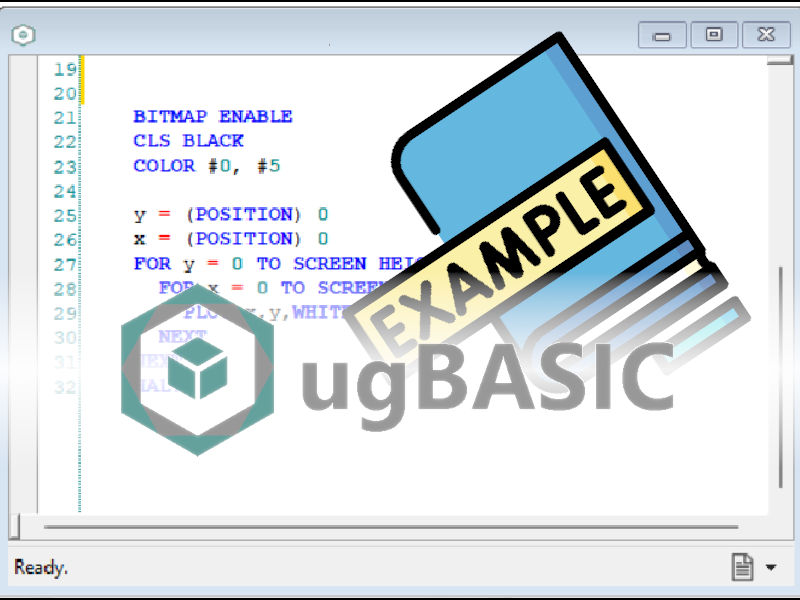ARRAY MANAGEMENT: INIZIALIZATION
This small example will show how to define arrays with different data types, and initialize them.
source
compile
sandbox
issues?
back to examples


